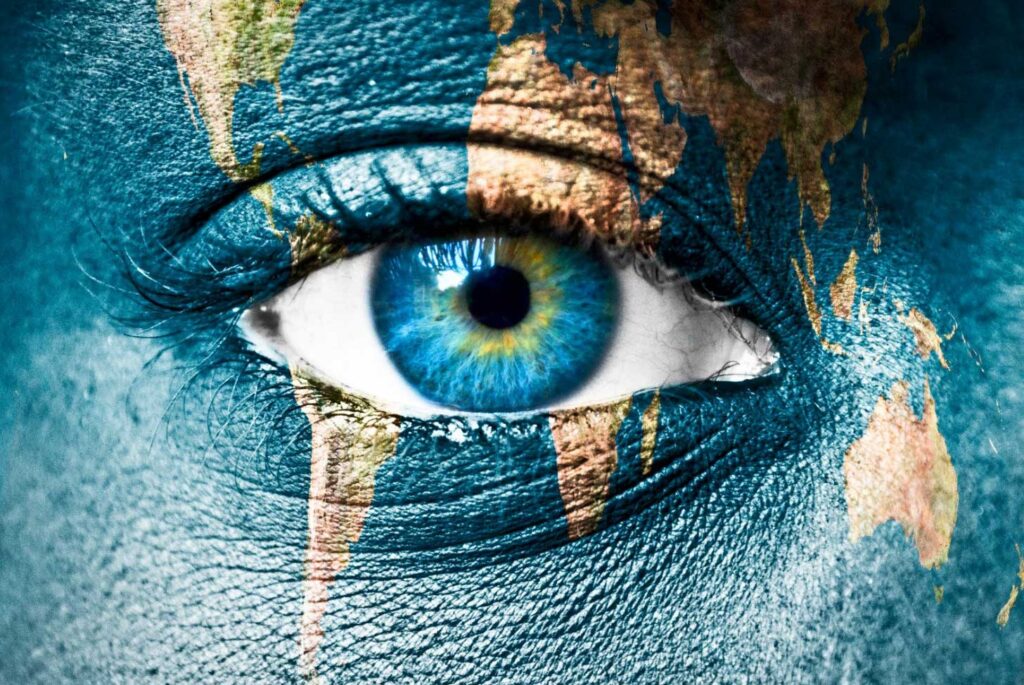
By: Dhania Puspa
In today’s fast-paced modern era, the values of humanity and empathy are often neglected. Yet, these are the foundations for a harmonious society. Humanity refers to recognizing the dignity of every individual, while empathy is the ability to feel and understand the emotions of others. In this article, we will discuss the importance of humanity and empathy in daily life, the challenges they face in the modern world, and how these values can be applied both personally and professionally.
Why is Humanity Important?

Humanity is the recognition that every individual has the same intrinsic value. Societies that value humanity tend to be more just, united, and peaceful. The values of humanity include responsibility, solidarity, and justice, all of which are necessary for creating a better world.
However, in an increasingly individualistic world, humanity is often overshadowed by materialistic interests. When the values of humanity are forgotten, we witness rising injustice, social inequality, and violence. Therefore, we must ensure that technological and economic progress does not come at the expense of humanity.
Since ancient times, philosophy and religion have emphasized the importance of humanity. Teachings such as “Ren” in Confucianism or “rahmatan lil ‘alamin” in Islam stress love and compassion towards fellow human beings. Humanity is not a new concept, but in the context of the modern world, it is often overshadowed by the pursuit of material wealth and technology.
Why is Humanity Still Relevant?

Humanity remains relevant because it is the glue that binds people together despite differences. In a world growing increasingly complex, recognizing the humanity of others becomes the foundation for building a just and peaceful society. Therefore, humanity is a universal value that must be continuously upheld.
Empathy is The Manifestation of Humanity.

Empathy is one of the clearest manifestations of humanity. It is the ability to understand others’ emotions, whether in happiness or sadness. Empathy enables us to form deeper and healthier social connections. Unfortunately, in this digital age, empathy is often eroded. Communication increasingly takes place through screens, distancing us from face-to-face interactions that are rich in emotion.
Why is Empathy Needed?

Empathy helps us understand others’ perspectives and resolve conflicts more wisely. In personal relationships, empathy creates stronger and deeper bonds. In professional settings, empathy is an essential skill for leaders, as empathetic leaders can understand their teams’ needs and create a supportive work environment.
Research also shows that people with high levels of empathy tend to have more satisfying interpersonal relationships and perform better in team contexts. In the professional world, empathy contributes to creating a more inclusive and productive work culture.
Challenges to Humanity in the Modern World

Technological advancements, globalization, and urbanization have introduced new challenges to the values of humanity. Social injustice, refugee crises, and climate change are examples of how humanity is tested in the modern world.
While social media and digital communication have expanded our reach, they often reduce empathy. Online comments or interactions made without emotion or understanding frequently lead to unnecessary conflicts. Without deep emotional engagement, relationships formed through social media tend to be more superficial.
The gap between the rich and poor continues to widen, both globally and within nations. This inequality leads to social unrest and threatens the stability of societies. Communities that lack equal access to education, healthcare, or decent jobs become increasingly marginalized.
Across the world, conflicts and natural disasters have forced millions of people to leave their homes. The uncertainty and inhumane treatment of refugees present a significant challenge to host countries. In such situations, empathy and humanity are essential for finding fair and humane solutions.
Applying Humanity and Empathy in Professional Life

The values of humanity and empathy are also crucial in the workplace. Productivity-focused environments often overlook individual well-being. However, organizations that prioritize empathy tend to be more innovative, inclusive, and productive.
Empathetic leadership is one way humanity manifests within organizations. Empathetic leaders not only understand the needs and challenges of their teams but also create environments that support employee development. Such leaders focus not just on results but also on the well-being of their teams.
Empathetic leaders are capable of making fairer and wiser decisions while building stronger relationships with their team members. Employees who feel understood and valued are more likely to contribute at their best.
Empathy is also critical in customer interactions. In business, empathy helps build trust and loyalty. Customers who feel understood are more likely to return for repeat business. Empathy allows companies to respond to customer needs and issues in a more human and solution-oriented way.
Cultivating Humanity and Empathy in Daily Life

To keep the values of humanity and empathy alive in daily life, there are several practical steps we can take:
- Listen Attentively
One of the best ways to show empathy is by being a good listener. Listening without judgment or immediately offering solutions helps others feel heard and understood.
- Perform Small Acts with Big Impact
Humanity can be expressed through small actions, such as offering help to those in need, greeting others warmly, or participating in social activities.
- Get Involved in Social Causes
Joining humanitarian organizations or social causes is another way to cultivate empathy. By interacting directly with people in need, we can better understand their feelings and challenges and become more sensitive to social issues.
- Do a Self-Reflection
Take time each day to reflect on how we interact with others. Have we been empathetic enough in our actions? Self-reflection helps us become more aware of our role in building a more humane society.
Shaping a Future Based on Humanity and Empathy

Humanity and empathy are essential for creating a more just and harmonious world. In the face of global challenges such as social injustice, refugee crises, and climate change, these values are more important than ever. Practicing empathy in both personal and professional life can bring about significant positive changes.
As individuals, we have a responsibility to nurture and strengthen these values, whether through education, self-reflection, or concrete actions. In doing so, we contribute to creating a more humane and empathetic world.
For those who want to deepen their understanding of empathy and humanity, and how these values can be applied in everyday life, we invite you to explore the training and consulting services we offer. Contact us through campsite.bio/qqgroup or social media for more information.
Let’s step forward together towards a greater, more humane future!
